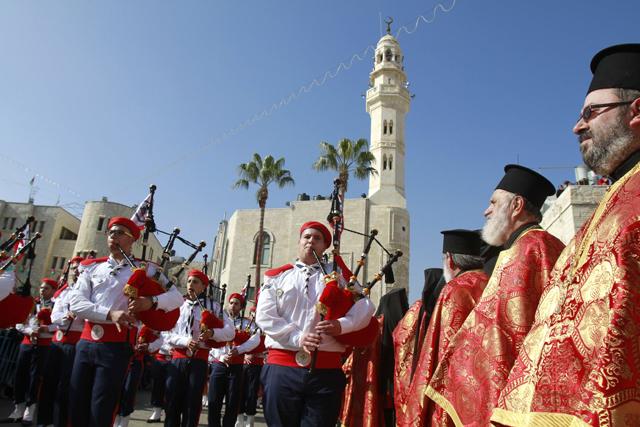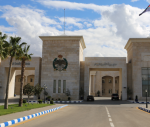RAMALLAH/OCCUPIED JERUSALEM — A Palestinian official said the Palestinians have reservations about some of US Secretary of State John Kerry’s ideas for the outlines of a peace deal with Israel, particularly on the future of Jerusalem.
Kerry left Monday after meetings with Israeli and Palestinian leaders. He is to present a US proposal for a peace framework and is expected back in the region next week.
The official said Monday that wide gaps remain, including about East Jerusalem.
The official, who spoke to The Associated Press on condition of anonymity because of Kerry’s demand for discretion, said the US state secretary suggested that a framework refer to Palestinian “aspirations” to have a capital in Jerusalem.
The Palestinians want a specific mention of East Jerusalem as their capital, fearing that otherwise they’ll end up with a small part of the city.
After four days of intense diplomacy, Kerry headed home Monday, insisting progress had been made despite failing to agree a framework to guide Israeli-Palestinian talks.
On his 10th visit to the region as US top diplomat, Kerry spent hours locked in separate meetings with Israeli Prime Minister Benjamin Netanyahu and Palestinian President Mahmoud Abbas.
He also visited Jordan and discussed peace efforts with His Majesty King Abdullah.
The US official also made a trip to Saudi Arabia, where he held talks with the Saudi monarch.
With the US remaining tight-lipped about the details, little news has filtered out about Kerry’s proposals to bridge the huge gaps between the two sides as they seek to draw up the contours of two states living side by side.
According to a report in Israeli daily Maariv, Kerry pressed Netanyahu to agree to a formula which would enable the return of some Palestinian refugees, who fled or were expelled from Israel in 1948.
Netanyahu refused, Maariv said. According to the newspaper, Israeli negotiators also wish to extend talks beyond their agreed April deadline to January 2015, in return for freezing some settlement construction in the occupied West Bank.
Jordan and Saudi Arabia will be key to any deal.
Jordan’s historic role in the guardianship of Muslim sites in Israeli-annexed Arab East Jerusalem is recognised under its 1994 peace treaty with Israel.
Saudi Arabia authored a 2002 peace plan which is the basis of Arab aspirations for any deal.
Kerry, who has made a Middle East peace deal a personal quest since taking office in February, is due to meet this week with top members of the Arab League to brief them on his discussions in Israel and the West Bank.
This trip was clouded by bitter recriminations from both Israeli and Palestinian leaders, accusing each other of not being serious partners in the search for peace.
On Sunday, Netanyahu renewed allegations that Palestinians were “continuing their campaign of inciting hatred.”
The Palestinians, meanwhile, reportedly told Kerry they will refuse to recognise Israel as a Jewish state, and remain steadfast in their opposition to stationing any Israeli troops on the border between the West Bank and Jordan to ensure Israel’s security in a new Palestinian state.
Israeli media said he could be back as early as next week.


















